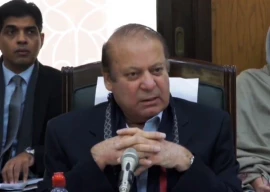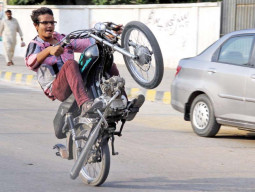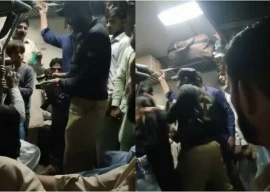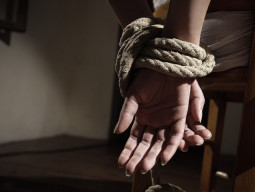KABUL: An Afghani singer has created ripples in war torn Afghanistan's humble music industry, by becoming the first female rapper. In an interview to Associated Press, 23-year-old Sosan Firooz talked about her debut track “Our Neighbours”, life as a refugee and in her country.
Afghan society usually looks down upon female artists and Firooz is no different, having already been shunned by some of her relatives. She is also an actor, appearing in secondary roles in a number of local TV soap operas.
With lyrics such as, "Listen to my story! Listen to my pain and suffering!" Firooz sings about repression of women, her hopes for a peaceful Afghanistan and the misery she says she experienced as a small child living in neighboring Iran, where her family fled there during the Afghan civil war of the 1990s and the hardline Taliban regime's rise to power in 1996.
Sharing her experience about being a refugee in Iran, during the AP interview, she said the Iranians looked with disdain on Afghan refugees.
"I remember while we were in Iran, we were called `dirty Afghans' and told to go to the back of the line at the bakery."
Firooz also spent time as a refugee in Pakistan and returned to Afghanistan with her family seven years ago.
Her song's message to Afghans: Stay in your homeland. Those who leave, she sings, will only get jobs washing dishes or working at a car wash. "They will miss their homeland," she raps in a staccato style, part rap and part hip-hop. "They will want to kiss the dust of their homeland."
"What is the result of Afghans being refugees in Iran and Pakistan?" she raps in Dari, one of Afghanistan's two main languages. "Half of them are addicts and the other half are terrorists!"
As of now, the song's video has been released on YouTube, which shows a series of pictures of Firooz posing in a hip-hop style gear, dangling chains and bracelet, while In some pictures, she is wearing a bandana with skulls with no headscarf.
Firooz is not yet widely known among Afghans, but she's breaking traditional rules for women in a very conservative society, where some women don't go outside without wearing burqas that cover them from head to toe.
Violence against women is still common in Afghanistan, especially in remote areas, with reports of women being stoned or executed in public on suspicion of having a relationship with men. During their rule, the Taliban had banned women from pursuing education at schools. Music, irrespective of being sung by men or women, was also banned.
"We want an end to all cruelty against women and children," Firooz demands.
Talking to AP, Firooz's father Abdul Ghafar Firooz says he has quit his job at the government-run electric department to accompany her whenever she leaves the house and protect her as she pursues her acting and musical career.
"I am her secretary, answering her phones. I am her bodyguard, protecting her. When she's out, I must be with her," her father said. "Every parent must support their daughters and sons to help them progress," Abdul said.
Firooz’s mother, who does humanitarian work is very careful not to mention her daughter's budding career.
"Family support gives me the strength to fight against the problems in our society," the 23-year-old singer says.
Rap and hip-hop are upcoming genres of music in Afghanistan with a few male rappers, including 28-year-old Bejan Zafarmal – nicknamed DJ Besho – who have made a few CDs that can be bought in the Kabul bazaar.
Firooz's song was arranged by well-known Afghan singer and composer Fared Rastagar, who recently returned from living in Germany and has a recording studio in Kabul.
"I admire Sosan for her courage and appreciate the support of her family," Rastagar said. "Rap is needed here," he said. "We need to bring changes in all parts of life including music."
Artists in Afghanistan don’t enjoy the same perks and privileges as their peers do elsewhere in the world. Firooz lives with her family in a mud brick house in a poor neighborhood in north Kabul. She uses an old desktop computer to write her music and recently received an electronic keyboard as a gift from one of her supporters. She doesn't even have the money to make CDs or a more elaborate music video.
"When war started in our country, there were bullets, artillery, rockets. All our trees were burned down. The war forced us to leave our country," she raps. "We are hopeful for the future in our country. And we request that our neighboring countries leave us alone."
COMMENTS (5)
Comments are moderated and generally will be posted if they are on-topic and not abusive.
For more information, please see our Comments FAQ













































@Salman: and at the same time, played a 'great game' of strategic depth in Afghanistan. Why should we think Afghans owe us anything because we supported their refugees? What were we supposed to do, let them all die?
You're welcome.
Warm regards from Pakistan which has supported more than 3 million afghan refugees for almost 25 years.
"And we request that our neighboring countries leave us alone.”
Ouch!
Extremely cute and amazing. Amazing and excellent job..............!! Can anybody tell me what she says about Pakistan and Afghanistan ??